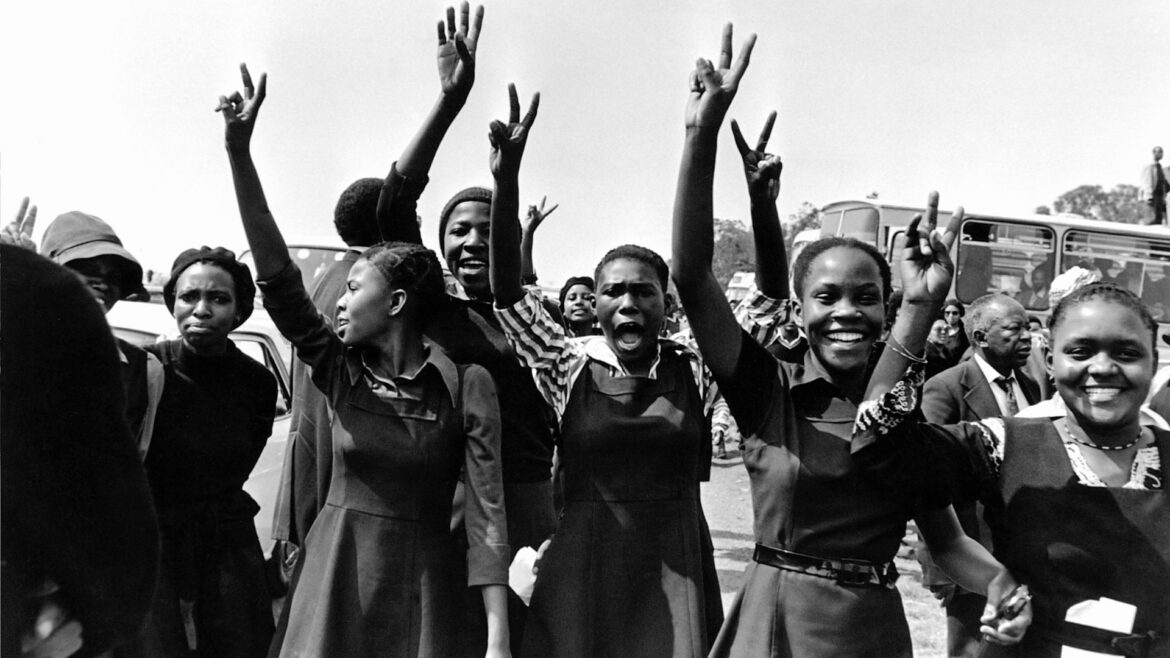The Soweto Uprising, a poignant chapter in South Africa’s tumultuous history, encapsulates the fervor and desperation of youth resisting an oppressive regime. On June 16, 1976, thousands of schoolchildren took to the streets of Soweto to protest the imposition of Afrikaans as the medium of instruction in their schools. This cataclysmic event not only signified a pivotal moment in the struggle against apartheid but also served as a testament to the indomitable spirit of young people when confronted with systemic injustices.
In the context of Christian values, the uprising resonates deeply with theological principles of justice, human dignity, and the moral imperative to stand against oppression. The actions of the young people that day were not merely impulsive; they were reflective of a profound yearning for liberation, echoing the biblical call for liberation and justice. The narrative surrounding the Soweto Uprising warrants deeper consideration, particularly in how it highlights youth agency in social movements and the moral responsibilities of those privileged to witness such struggles.
The apartheid regime in South Africa was characterized by its pervasive racial segregation and systematic disenfranchisement of the black majority. The imposition of Afrikaans, a language associated with the oppressor, felt like an additional layer of subjugation to the already marginalized communities. For the youth, education was not just a means of academic progression; it was a battleground for identity and dignity. The decision to resist represented a monumental confrontation against an unjust system, embodying the Christian ethos of standing firm against tyranny and inequality.
However, the uprising did not materialize in isolation. It was preceded by an amalgamation of socio-economic disparities and political disillusionment that had been brewing for decades. Young people in Soweto were acutely aware of the systemic inequities that governed their existence. They witnessed firsthand the deprivation of basic human rights and the erosion of their cultural identity. Their protest was thus not simply a reaction to educational policies, but a clarion call for autonomy, justice, and recognition as equal members of society—a theme that resonates profoundly in Christian theology, which emphasizes the inherent worth of every individual.
Moreover, the role of faith in shaping the consciousness of the youth at that time must not be overlooked. Many of the leaders and participants in the Soweto Uprising were influenced by the teachings of liberation theology, which infused Christianity with a potent social justice perspective. This theological framework posited that the Gospel calls for believers to advocate for the oppressed and to actively participate in the struggle against dehumanizing systems. In light of this, the Soweto uprising can be interpreted as an embodiment of faith in action—youthful vigor converging with spiritual conviction to challenge the status quo.
Yet, the consequences of this uprising were dire. The government’s response was brutal; the protests were met with lethal force, resulting in the deaths of dozens of children and the wounding of many more. The images of bravery and bloodshed galvanized international outrage and solidarity against apartheid. However, from a Christian perspective, this raises an imperative question: How should society respond to the suffering and sacrifice of the innocent? The martyrs of Soweto became symbols of a larger struggle; their legacy compels believers to remain vigilant against injustices, advocating for peace, reconciliation, and restoration. The inherent value of every young life lost that day serves as a solemn reminder of the sacred duty to protect the vulnerable.
As the years progressed, the Soweto Uprising catalyzed a broader anti-apartheid movement, inspiring solidarity among diverse groups and igniting a global cry for justice. The youth’s steadfastness and courage resonated beyond South Africa’s borders, promoting a worldwide dialogue on civil rights and the moral imperatives tied to liberation movements. This phenomenon invites reflection on the universal nature of struggle against oppression, a theme that reverberates throughout the Christian narrative where the oppressed often become the catalysts for change.
Through the lens of historical retrospection, the Soweto Uprising challenges contemporary societies to reassess their positions regarding social justice and the role of youth in civic engagement. Are we nurturing spaces where young voices can be heard, where their passion and idealism can be honed for constructive change? The biblical narrative, steeped in examples of youthful protagonists, suggests that the empowerment of young people remains a vital component in the collective transformation of society. The ability of youth to initiate change is not merely a matter of sociopolitical dynamics; it is rooted in a moral imperative to cultivate righteousness and equity.
In summation, the Soweto Uprising encapsulates the essence of youthful resistance laced with courage wrapped in moral conviction. It continues to inspire new generations to be advocates for justice, authenticity, and compassion, urging Christians and people of goodwill to commit to the ongoing struggle against systemic inequity. The legacy of those brave young hearts on that fateful day echoes in the hearts of every believer dedicated to fostering environments of love, dignity, and justice. The call to action is not just a historical remembrance; it is a living testament to the power of youth—and indeed, all of humanity—to usher in an era of true liberation and reconciliation.



